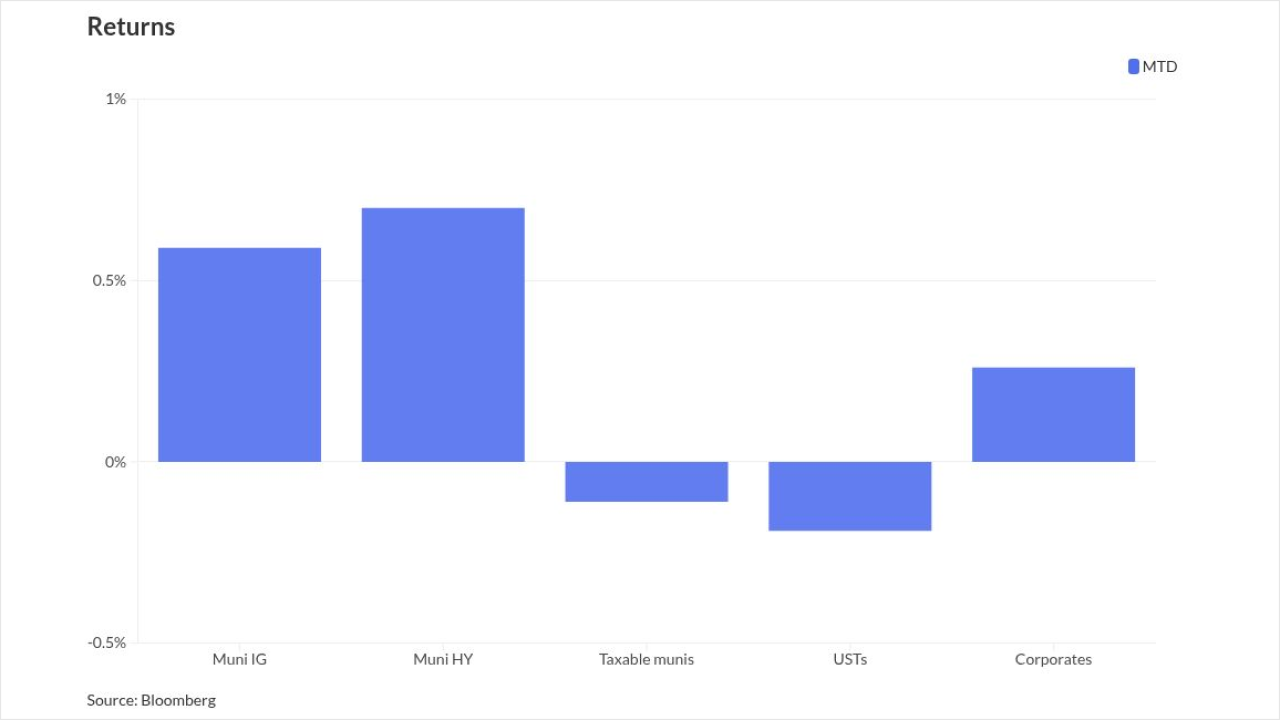
An audit of the St. Louis Public Schools found the district will run out of funds in fiscal year 2031 on its current trajectory, among other issues.
Missouri state auditor Scott Fitzpatrick
But Fitzpatrick
"Our report identifies a great deal of mismanagement in terms of the unreasonable purchases that were allowed, how salaries were increased without justification, how millions of dollars in unconstitutional incentives were paid out and how vendors were selected in violation of district policy and state law," Fitzpatrick said in the statement.
"The report also details how the district faces a rapidly deteriorating financial condition because of the failure of the Board to plan appropriately for the long-term financial future of the district," he said.
Fitzpatrick told The Bond Buyer by email that he hopes to release the second audit report by the end of this year. That report will examine topics such as Sunshine Law compliance; vacant school buildings in the district; issues with the Board of Education; the district's compliance with its own policies and procedures; and a transportation contract that was canceled by a vendor at the start of the 2024 school year.
Charles Poole, executive director of communications for the district, said in an emailed statement the district "has already implemented comprehensive reforms," including tighter financial oversight and budgeting controls, such as formal review of all contracts, credit card usage and administrative hiring.
It also has begun ensuring all disbursements are necessary and have supporting documentation; requiring training across departments on financial accountability, procurement and compliance with state requirements; and aligning policies and enforcement mechanisms with best practices.
The district's practice of allowing "student activity accounts" for each school has been discontinued, Poole said.
"SLPS has undertaken a multi-year financial stabilization plan, designed to return SLPS to a balanced budget position while prioritizing student outcomes and equitable access to high-quality instruction," Poole said. "We look forward to continuing our partnership with the state auditor's office and the greater St. Louis community as we move forward with integrity, accountability, and renewed purpose."
Among other things, Fitzpatrick found a trajectory of deficit spending, with the district budgeting $465.8 million in revenues and $483.5 million in expenditures for fiscal year 2024. SLPS budgeted deficits of $35.4 million and $33.4 million for fiscal years 2025 and 2026, respectively.
"If the district continues deficit spending at the rate currently projected, the unassigned operating fund balances will fall below 30% of expenditures in fiscal year 2027 and below 20% in fiscal year 2028," Fitzpatrick's office said in the statement.
"In fiscal year 2030, if not addressed, the current rate of deficit spending will result in fund balances at or below 3%, which the Department of Elementary and Secondary Education defines as a financially stressed district," it added.
The district would run out of funds by the end of the 2031 fiscal year, according to the audit.
Further, a sampling of 27 transactions by the district found 17 of them were "questionable or unreasonable," according to Fitzpatrick's office. Those included $3,888 for a Top Golf venue rental; $1,689 for a four-night stay at Caesar's Palace; and $1,282 for an Airbnb rental, which was paid for using the former superintendent's district-issued credit card.
The audit also found district credit cards were used for "unreasonable travel upgrades," such as upgraded boarding, early flight check-in, in-flight Wi-Fi, and additional travel insurance.
The district overpaid the former superintendent for moving expenses by thousands of dollars and reimbursed the interim deputy chief of operations $15,000 for moving expenses, "even though there was no employment contract or agreement that allowed for the reimbursement of moving expenses," Fitzpatrick's office said.
In its dealings with vendors, the district bypassed the required sealed bid process; did not competitively select certain vendors, as required by district policy and state law; and did not retain adequate supporting documentation or seek quotes, board approval and contracts when required.
District staff also racked up $1,106 in late fees on unpaid credit card bills, according to the audit.
"It is certainly fair to say the board had a hand in the mismanagement that occurred in the district," Fitzpatrick said by email. "The board was lax in its oversight duties and its duties to provide long-term financial planning for the district."
He expects to gauge whether the district has made meaningful strides to change its trajectory in the second audit report. "We won't get a real understanding of how committed the district is to turning things around until we do our follow-up report," he said.
"When you see a district that is on a perilous financial path because of poor planning and then combine wasteful purchases such as these that were allowed to happen, it raises serious questions about how focused the school district is on making it the top priority to provide students with a first-rate education," Fitzpatrick said.
S&P Global Ratings rates the St. Louis Board of Education AA-minus with a stable outlook. Fitch Ratings and Moody's Ratings do not currently rate the district, according to the rating agencies.





